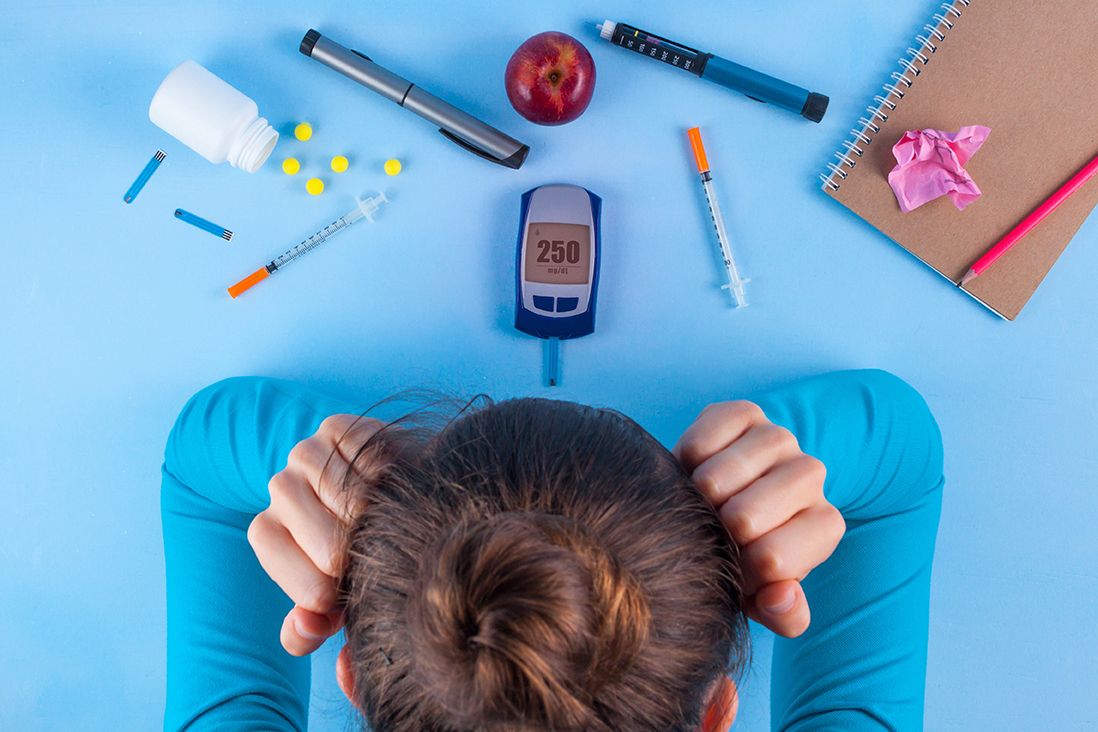Emotions are a part of life and dealing with them in the correct manner is vital for a happy and successful life. It is a fact that many chronic illnesses are known to have a deep psychological impact. Feelings of melancholy, deep distress and depression are common among patients.
Since type 1 diabetes is something that affects early on in the childhood, most people tend to have feelings of sadness, isolation, anxiety, and depression. As such, dealing with diabetes type 1 is a lot of pressure with daily routine including:
- Self-monitoring of blood sugar levels
- Maintaining a diabetic diet
- Taking insulin and medications on time
A person with diabetes type I is at an increased risk of suffering from depression, sooner or later in life. The constant fear of low sugar levels, stigma of injecting insulin, peer pressure, and many other factors contribute to psychological issues in both children and adults with type 1 diabetes.
Diabetes, Depression, and Anxiety
Those dealing with constant pressure or stress being a diabetic will gradually become emotionally vulnerable to anger, frustration, discouragement, sadness, and isolation.
The chances of these people being diagnosed with clinical depression are quite high. Sometimes, lack of blood sugar control can also cause anxiety leading to depression.
What are causes of stress in diabetes type 1?
- Loneliness and isolation
- Feeling overwhelmed by so many things you have to do to manage your diabetes
- Worrying or freaking out about diabetes-related complications
- Loss of sense of control especially when your blood sugar levels are unmanageable
- Tension or lack of communication between your diabetes doctor and yourself
Signs to look out for
- You don’t enjoy the things you used to
- You lose sleep or you sleep more
- You eat more or you lose your appetite
- Feeling dull or low constantly
- Lethargy
- Constant headaches and body pains
- Frequent stomach upset
- Irritable bowel
- Frustration
- Anger or irritability
- Disappointment
Common methods of intervention for depression include
- Counselling to make the person with diabetes Type I understand that depression is curable
- Cognitive behavioural therapy
- Counselling for better lifestyle changes
- Self-care
Lifestyle changes, irrespective of age, can in help you lift up your spirits. Meditation and yoga have a lot of relaxation techniques that helps to ward off stress. Get help from your medical care team who will suggest you to exercise regularly, make change in your diabetes diet, medication, and treatment. All these changes can help you cope with depression and anxiety better while dealing with diabetes type I.
Seeking help in case of psychological issues is very important in type 1 diabetes as neglect of your state of mind can easily lead to neglect in your diabetes treatment.











